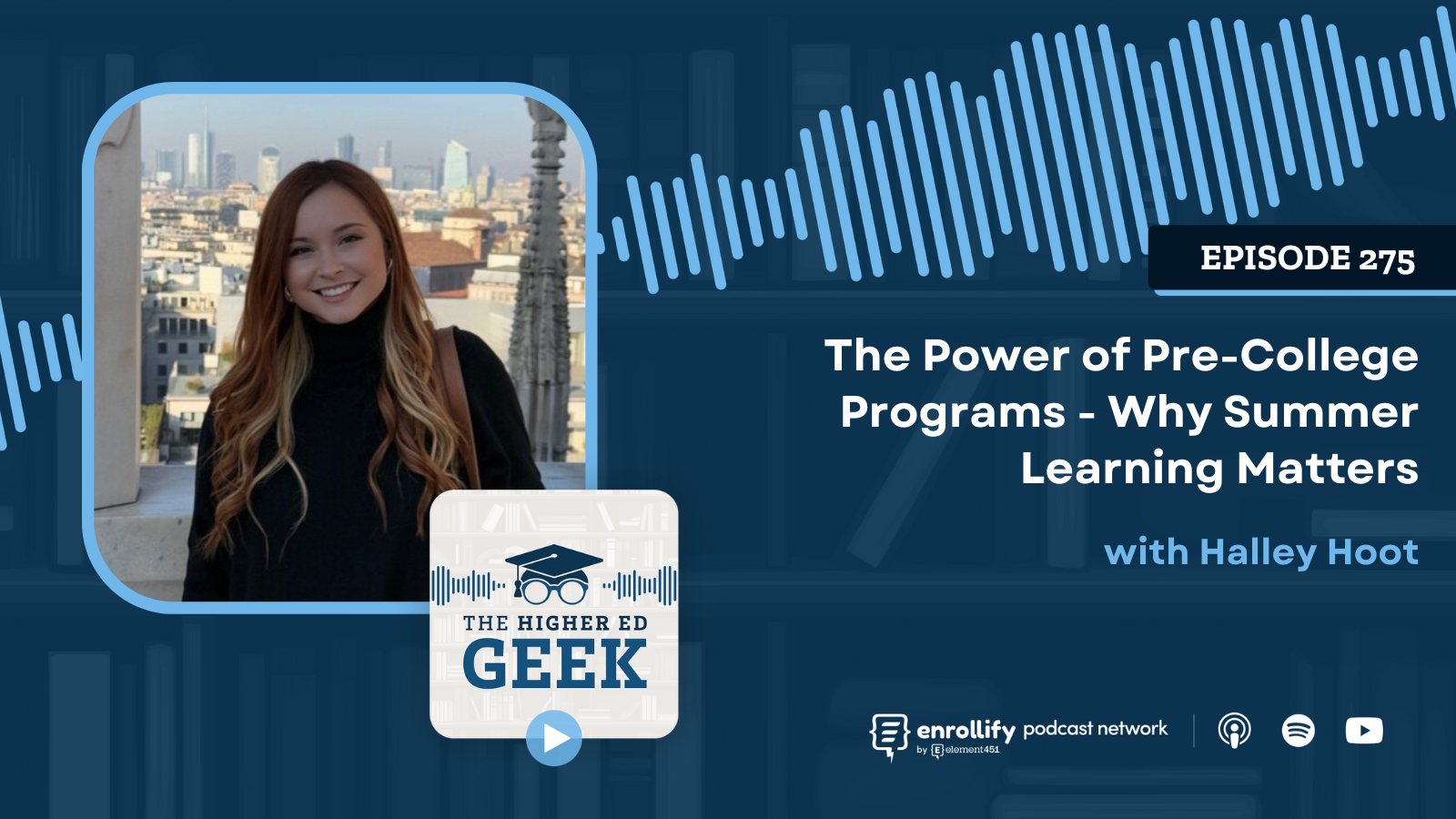About the Episode
About the Episode: Explore the evolving landscape of AI-powered wearables and their implications for higher education and beyond. We delve into groundbreaking wearables, including Apple Vision Pro, Oura Ring, Meta Smart Glasses, and the pioneering Neuralink brain-computer interface. The discussion spans from health and fitness monitoring to spatial computing and immersive learning experiences, highlighting the potential for these devices to revolutionize interaction, personal health monitoring, and educational engagement. With insights into the technology behind these wearables and predictions for their future integration into daily life and higher education, this episode unpacks the promise of AI wearables in creating more connected, personalized, and immersive experiences.
Key Takeaways
- Understanding Machine Learning: Machine learning identifies patterns in data to make predictions. It’s the foundation of predictive AI and distinct from generative AI, which creates new data outputs.
- Core Components of ML Models: Key elements include training data, target variables, feature engineering, and model validation—each vital to building effective predictive systems.
- Behavioral Data Matters: Static demographic data has its limits; behavioral data, analyzed over time, provides richer insights for predictive modeling.
- Importance of Model Interpretation: Ensuring stakeholders understand and trust AI models is just as critical as the models’ accuracy. Adoption hinges on transparency and clarity.
- Future of AI in Higher Education: Advanced models are evolving to not just predict, but proactively suggest the next best action or nudge to guide students along their journey.
Episode Summary
What’s the Difference Between Predictive AI and Generative AI?
Ardis and JC clarify the distinction between predictive and generative AI. Predictive AI focuses on estimating probabilities and outcomes (e.g., likelihood to enroll), while generative AI creates new outputs, like synthetic videos or tailored emails, using input data. Both play unique roles in reshaping higher education.
Why Is Machine Learning Critical for Higher Education?
Machine learning allows institutions to process vast datasets, identifying key indicators for outcomes like enrollment. The hosts explain how training data informs models, using examples from their own pioneering work in enrollment management. Training data must be well-curated to avoid overfitting—a scenario where models perform well on test data but fail in real-world applications.
How Does Behavioral Modeling Enhance Predictions?
Behavioral data offers a dynamic view of student actions, such as email interactions or event attendance, that evolve over time. JC and Ardis discuss how temporal patterns—like the time of day or frequency of behaviors—can unlock deeper insights, helping to predict student milestones with greater precision.
What Role Does Feature Engineering Play in Model Success?
Feature engineering, the process of selecting and refining data inputs, is both an art and a science. JC credits Ardis for introducing creative proxies like "distance to campus" instead of zip codes to improve model performance. The hosts stress the importance of domain knowledge in crafting meaningful features.
How Are AI Models Deployed in Higher Ed?
Deploying machine learning models involves balancing precision with usability. Ardis highlights how real-time scoring and retraining allow institutions to respond dynamically to new data, ensuring predictions remain relevant and actionable. Today’s advancements even enable models to suggest specific nudges or actions to guide students through their enrollment journey.
Connect With Our Co-Hosts:
Ardis Kadiu
https://www.linkedin.com/in/ardis/
https://twitter.com/ardis
Dr. JC Bonilla
https://www.linkedin.com/in/jcbonilla/
https://twitter.com/jbonillx
About The Enrollify Podcast Network:
Generation AI is a part of the Enrollify Podcast Network. If you like this podcast, chances are you’ll like other Enrollify shows too! Some of our favorites include The EduData Podcast and Visionary Voices: The College President’s Playbook.
Enrollify is made possible by Element451 — the next-generation AI student engagement platform helping institutions create meaningful and personalized interactions with students. Learn more at element451.com.
Connect with Us at the Engage Summit:
Exciting news — Ardis will be at the 2024 Engage Summit in Raleigh, NC, on June 25 and 26, and we’d love to meet you there! Sessions will focus on cutting-edge AI applications that are reshaping student outreach, enhancing staff productivity, and offering deep insights into ROI.
Use the discount code Enrollify50 at checkout, and you can register for just $99! This early bird pricing lasts until March 31.
Learn more and register at engage.element451.com — we can’t wait to see you there!















